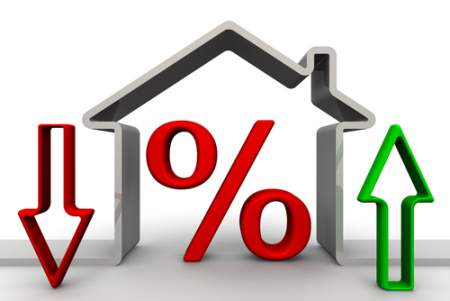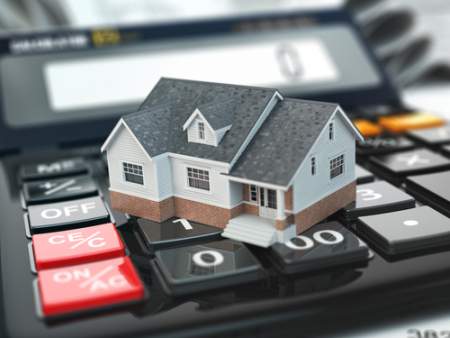Selling your home isn’t always as easy as clever staging and a competitive price. In fact, rising interest rates have a significant impact on a buyer’s ability to purchase your home. With an interest rate increase of as low as one percent, many consumers may lose their purchasing power altogether. Fewer buyers could lead to longer listings, and lengthy listings could lead to price reductions. But there’s also a plus side, so it’s not the time to pull the plug just yet on your decision to sell your house.
 Rising interest rates mean homes may be less affordable for buyers due to higher mortgage payments. Although some sellers may figure that lowering the price of their house could increase chances of selling, this isn’t always the case.
Rising interest rates mean homes may be less affordable for buyers due to higher mortgage payments. Although some sellers may figure that lowering the price of their house could increase chances of selling, this isn’t always the case.
In fact, with equity low and interest high, some sellers would be lucky to break even while others would end up owing the bank money, or forced to consider short sales. Lowering the price on the property does not aid the seller in most cases. For this reason, sellers should hold off on those price cuts. In fact, with some homeowners opting not to list during interest rate increases for fear of losing money, the lower inventory of houses creates more demand and competitive offers.
Furthermore, there is no proven connection between rising interest rates and lower home prices, meaning that lowering the price of your home won’t necessarily make it more attractive to buyers who are feeling the pinch.
Mortgage interest rates have profoundly influenced how much money lenders will allow customers to borrow. Lenders consider debt-to-income ratio in determining how much money they’ll lend. Since interest rates affect the monthly mortgage payment, many buyers are forced to take smaller loans, which means they shop lower price brackets or are forced out of the market entirely. Furthermore, as interest rates increase, the principal applied to the mortgage also decreases.
There are a few workarounds for people serious about buying a home in spite of rising interest rates. To qualify for a home mortgage loan while interest rates increase, buyers may opt to put down larger down payments, seek co-signers to offset the debt to income ratio, or consider a second mortgage. However, many potential buyers aren’t willing to jump through hoops and may opt out of buying until rates drop. The risk for people considering buying may feel too high.
 During interest rate increases, some buyers who are still actively looking for properties might decide to purchase smaller houses or sacrifice location. At one point, desirable locations were a boon to sellers. On the contrary, in a situation with rising interest rates, desirable locations could prove to be a detriment.
During interest rate increases, some buyers who are still actively looking for properties might decide to purchase smaller houses or sacrifice location. At one point, desirable locations were a boon to sellers. On the contrary, in a situation with rising interest rates, desirable locations could prove to be a detriment.
When you sell your home during an interest rate increase, you may feel at risk of losing profit in the transaction, and if planning on buying another house, higher interest rates on the house you purchase next may be of concern. You may fear you’ll need to downsize. But don’t give up hope just yet.
On the positive side, interest rates tend to increase in conjunction with a flourishing economy. As the interest rates rise, so do the wages. In this case, there’s not much flux in the real estate market.
Another decisive factor in rising interest rates is that many potential buyers who have been teetering on the fence may feel compelled to take action before rates rise again. With the daunting threat of even higher interest rate increases, buyers are more likely to pull the trigger and make the purchase rather than waiting it out and risking higher rates.
Furthermore, lenders may be positioned to adjust their lending standards to allow for easier qualification for buyers. Stringent requirements have prevented many people from purchasing. As interest rates increase, applications for home loans decrease. Not only do lenders want to continue to attract customers, but refinance loans may also lessen during interest rate increases, providing a cushion for lenders and buyers.
The cocktail that could lead to a productive selling season combines motivated buyers, lowered lending standards, and consistent wage and job growth. In this scenario, the interest rate increase supports sales in real estate as opposed to hurting.
Although rising interest rates may be concerning to sellers, buyers, and lenders, those rates could also prove beneficial to everyone involved in real estate transactions.
Your real estate agent is the best source of information about the local community and real estate topics. Give Jennifer Bierfeldt a call today at 540-422-3264 to learn more about local areas, discuss selling a house, or tour available homes for sale.



